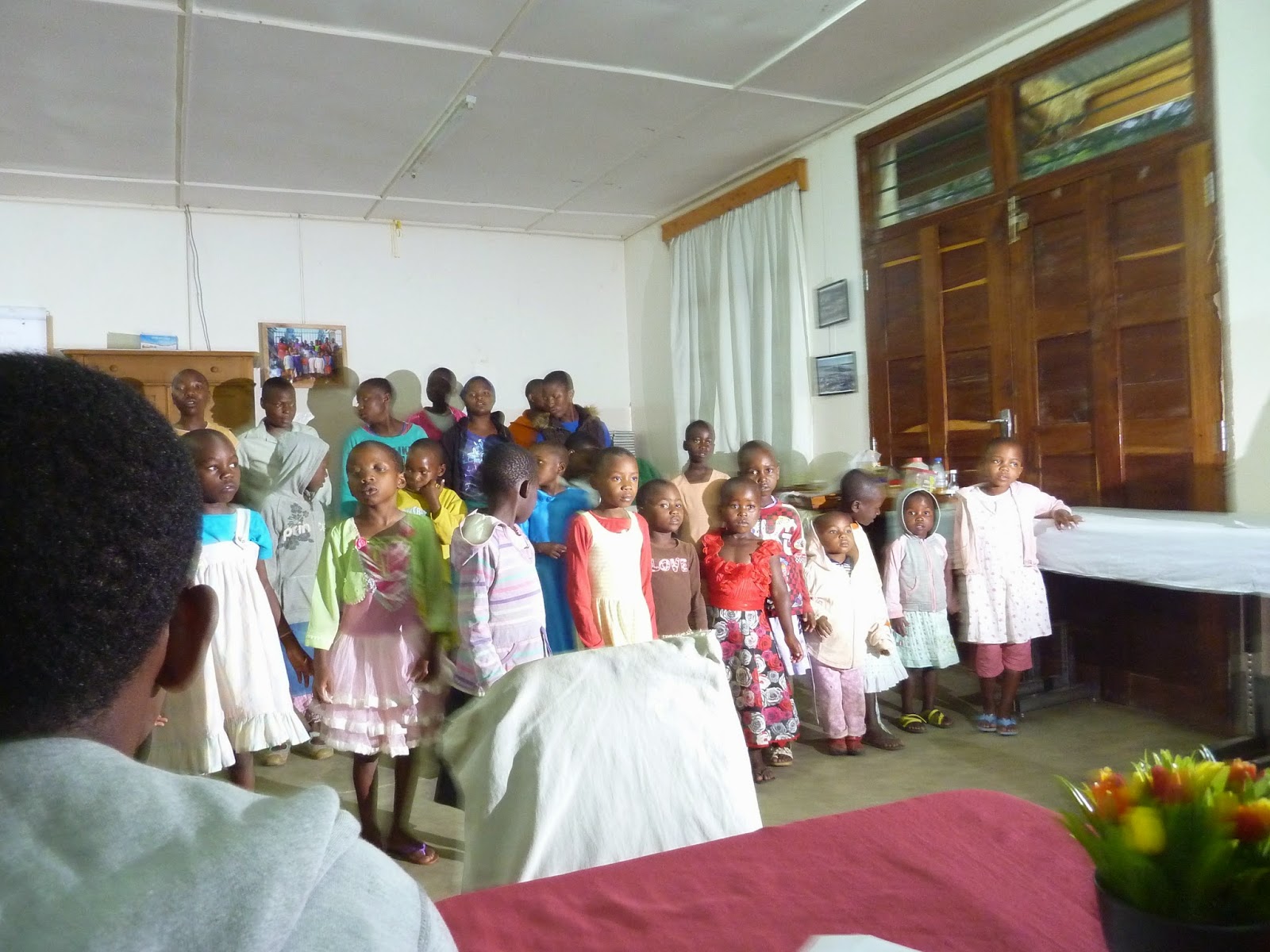Dora Saga died in November, 2013. She was as beloved a friend as is her
husband. Her death was tough on Dr.
Saga. He managed a brave countenance
while the wazungu medical people were here in January, 2014. However, just after we were here last year,
Dr. Saga’s daughters took him aside. The
three boys had returned to their jobs in Dar es Salaam after a couple weeks,
but his two daughters stayed for a couple months taking care of him. The conversation went something like this, I
believe.
“Dad, we have noticed how sad you are. We want you to be alive for a long time. So we think you should get remarried.”
“And,” they added, “we have chosen two women for you to
choose from.” Now of course I wasn’t
there, but I did have the conversation first hand from Dr. Saga. He said he knew both women and Dora had known
them and worked with them for twenty years.
He also remarked that he thought someone was courting the one he was
interested in and he had better get busy!
Mwamoody confirms the veracity of my recollection.
Yesterday was the culmination of the year-long courtship.
We got up to a beautiful morning. The day before there had been a huge
thunderstorm which took out the electricity for a while. In the middle of the night, Moody discovered
we had no water. He reluctantly called
Dr. Saga, who called Habakuk, who in the morning once again turned on the
water. “Thirty minutes,” Habakuk said. (More like 300 minutes.) Of course, the tank had been emptied and so
it needed to fill along with any pipes lower than the tank before there was
actually water available for us to use, which wasn’t by 10:00 AM. We all managed however, and the water was
available to the toilets by the time the wedding service was over. Whew!
The wedding was to start at noon, then the reception at 2 pm
in Ilula Mtua. Of course, the bishop was
an hour late, so the time frame started off behind, generally as expected.
The ceremony at Ilula Lutheran Church was lovely – what we
could see of it through the many photographers!
The choirs were wonderful of course.
There were many honorees at the service too. Rev. Msigwa was drafted into translating for Mchungaji
Lamont who delivered the first portion in Swanglish, some in Kihehe and the
remaining in actual American, with which Msigwa is very comfortable.
A pretty familiar order of service followed and concluded
with the bishop officiating. Then
pontificating for another 15 minutes, mixed with some further
introductions. I think the shortest
wedding I have ever witnessed was about 10 minutes. Pretty sure this one was at the distant other
end of the spectrum. We still loved it!
A few of the dignitaries retired to the guest-house for
cocktails, but generally settled for beer and use of our now functioning our
“facilities.”
The bride and groom came out of the church to cheering and
adoration. Soon, people boarded buses to
go to the reception just a few kilometers away.
When we were ready after refreshments, we made our way to where the
buses were, but they were gone.
A real treat was a small brass band that played before the
wedding. If we had to wait for the
bishop, this was compensation. They
played several numbers and we enjoyed it!
We bumped into the trombone player as we were looking for a
ride and he offered to bring us to the reception hall. We clamored into his vehicle, 14 of us. But it was only a short distance.
The reception was fun and we enjoyed ourselves. We were escorted to tables in the front, each
table with an interpreter. The tables
had sodas and fruit juices and one table had some wine, so we visited that
table!
A crazy MC presided. Families
were introduced, special guests too. There were a couple skits. One number was a guy doing a quick change
through several costumes. Another was a
sort of acrobat, in what I would call a hobo costume, certainly in contrast to
the finely dressed people at the reception.
His shtick was breathing flame, but was so-so at best. Actually, several of us wazungu did a Hehe
dance, which was much more impressive, if you ask me.
There were several processions with gifts to the bride and
groom. Gifts were brought forward. Three identical fifty piece place service
sets along with glasses, mugs and other necessaries for housekeeping (and
entertaining large groups). There were
pieces of fabric, nearly bolts, not merely 6 foot katangas. And what would a Tanzanian wedding be without
a live goat? It was brought by for men,
raised above their heads.
In place of a “dollar” dance, they used processions, women
to Anitha and men to Dr. Saga. Each of
us dropped a few TZS on the katanga as we came forward. Looked to me like it netted at least as much
as a dollar dance would have.
The wedding was truly classy. Someone reported it was the biggest wedding
Ilula had ever seen. I don’t doubt it!
Our hosts arranged for us to be brought back to Ilula in three
vehicles and about all I remember before I quickly fell off to sleep was the
hope that all of us were in the guesthouse as I had locked the door. Oh well, they can knock. Zzzzzzzzzzzz.











